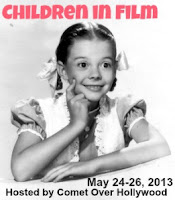seen @ Brooklyn Academy of Music, Brooklyn, NY
5.30.13
Reality television and daytime talk shows have made paternity cases into something tawdry and sensationalist. For me, at least, it's especially embarrassing when it involves black people. In recent months in my neighborhood, ads have gone up for a service that provides DNA testing. There's an image of a baby with the legend, "Who's your daddy?" Yes, it is extremely ghetto.
I've probably said it here before, but in case I haven't: too many people who don't know how to be parents are having babies, and a lot of them are just plain stupid - and yet, choosing to not have children is frowned upon. Huh?
Granted, however, it's difficult not to judge. I have a friend (no dummy by any stretch) who had three children with a woman who was absolutely wrong for him. They were wrong for each other, really; my friend was suffering from bipolar disorder at the time. When he first told me about this, I specifically remember fighting the urge to say something like, "What the hell were you doing having kids?" And yet, not only did he get his act together, he managed to raise his kids right. Having met two of them, I can attest to the fact that they're healthy, happy and sane, not to mention very talented artistically. Someone like my friend, however, is a rarity.
This brings us to Sarah Polley and Stories We Tell. First of all, I have to give some massive props to Polley as an actor-turned-director. Maybe it's because she's an indie girl and a foreigner to boot that she doesn't get as much attention as she should, but she's quietly built up an impressive string of quality films, from Away From Her to Take This Waltz (another film about marital infidelity) and now this.
Stories is about Polley's theater-actor parents and the mystery of whether or not Sarah is their biological child. The emphasis is largely on her late mother Diane who, along with younger versions of the family, are depicted in flashback scenes by actors. Meanwhile, the real-life, present-day versions, through interviews by Sarah, recreate the events that led to her discovery of the truth. In a somewhat meta twist, Sarah's father Michael not only narrates the story, but we actually see them in a recording studio as he narrates and she listens. (We even see Michael re-read a few lines of the narrative at Sarah's request.)
One of the main issues of the film concerns who has the right to tell these stories and how. Diane Polley is dead and, it is argued in the film, only she knows the full story behind Sarah's true parentage. This may be true, but as the film makes clear, this family drama has impacted not only Sarah's life, but others within the family, and even if they may not have had all the facts or were not directly involved, to exclude, or at the very least, minimize them, would be wrong.
At the same time, however, I don't necessarily think that Polley's version of the story needs to be the definitive one or should even be seen as such. I think it was her father who says something along the lines of how this story will be shaped by the decisions she makes in the editing room on what to keep and what to leave out, and how to present it - and this is true. Another version of the story could shed new light on the story, or provide new information - and isn't this the crux every storyteller faces, regardless of the medium? Gone With the Wind from the slaves' point of view would be a very different tale, for example. In the right hands, that could be a story worth telling.
Diane and Michael's was a love that waned, and that's always sad. The impression the movie gives is that she believed he couldn't love her the way she wanted, which led her to go astray, but at least one of Sarah's siblings is able to find forgiveness for Diane. Again, it's hard for me to be able to judge, which is why I probably shouldn't. The picture painted of Diane is of a life-of-the-party type who was deeply invested in her stage career, moreso than Michael. According to the movie, she married him thinking he was a different kind of person than he actually was, and this on the heels of a prior failed marriage. Could they have made it work out? Was it worth trying? I dunno... and this goes back to the notion that only she can tell the whole truth behind the story of Sarah's parentage.
There's a lot to think about in Stories. It's much more than the sharing of a family secret.

















































